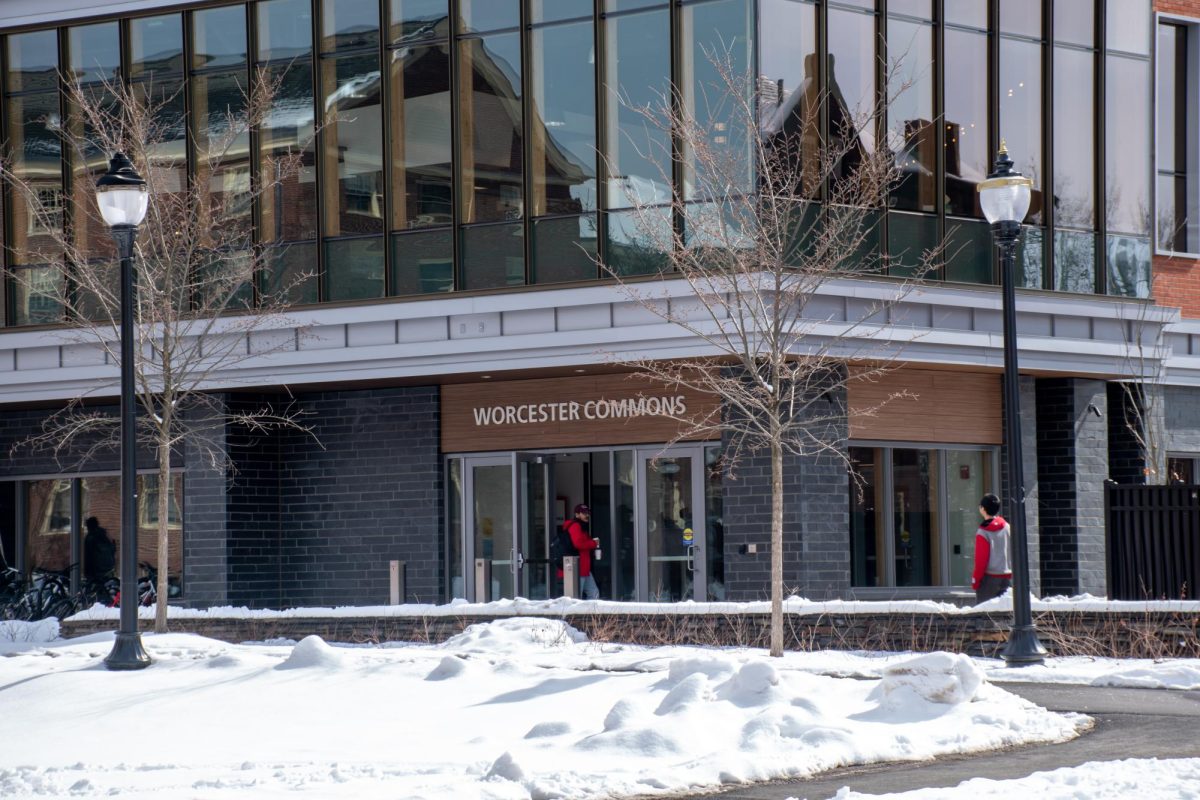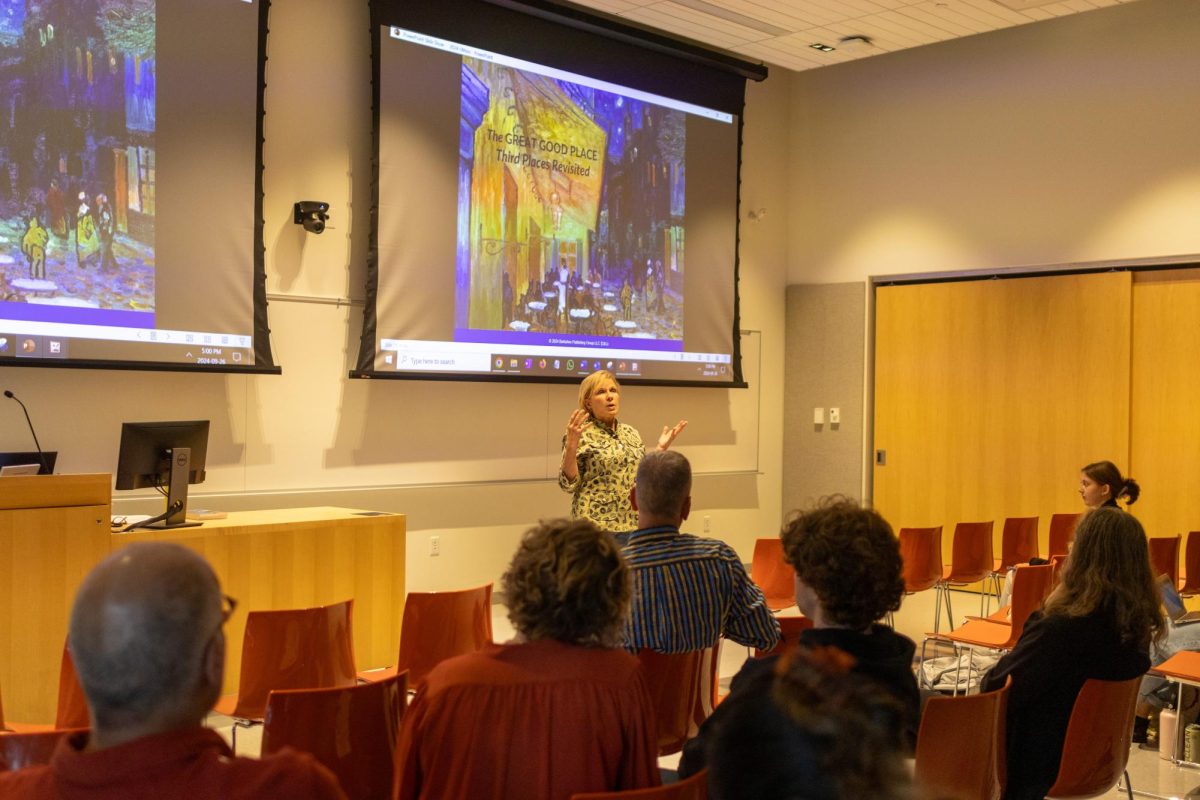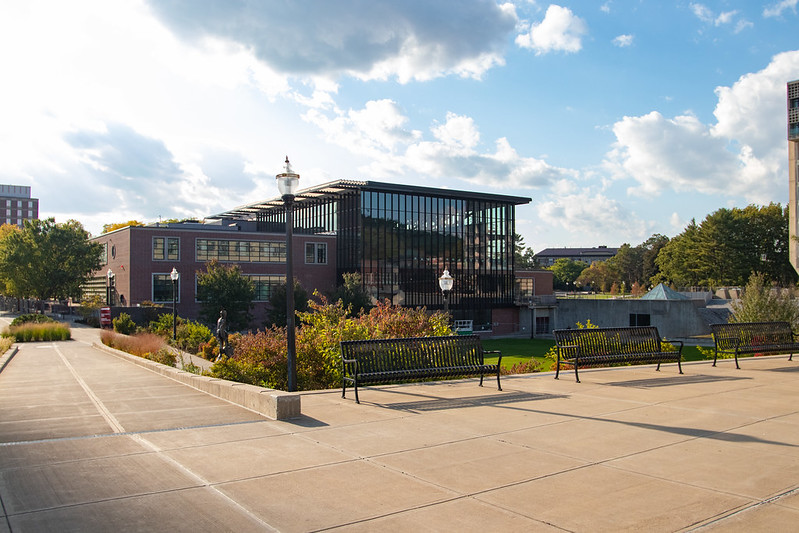
A 2013 survey conducted by University Health Services at the University of Massachusetts showed more than 98 percent of the campus community rated a women’s health clinic on campus as an essential service.
UHS responded by opening the first Women’s Health Clinic on campus, serving female UMass students, faculty and staff. The center opened last semester, with the grand opening scheduled for Sept. 30.
Kathy Rhines, administrator of diagnostic imaging, women’s health and specialty medical practices, said it is “typical” nowadays for women’s health care to be comprehensive and centralized.
“(The health center is interested in) keeping up with (the) changing demands of a dynamic community,” she said.
Rhines anticipates demand for the clinic to be greater than 5,000 visits per year.
Along with overwhelming support through survey data, Karen Dunbar Scully, communications and marketing manager for UHS, said the large percentage of UHS visits for women’s health concerns showed a need for the Women’s Health Clinic.
Although the University provided women’s health care for the last 40 to 50 years, Rhines said this clinic will include new services in an improved environment.
Providing new methods of contraception is a “big piece” of the services the clinic offers, said Linda Hoer, director of UHS. These will include intrauterine devices (IUDs) and Nexplanon (a contraceptive implant), said Rhines.
The full list of services includes routine examinations like papanicolaou tests, with follow-up testing of abnormal results, colposcopy procedures, evaluation and treatment regarding concerns like painful and irregular periods, birth control education and care and pregnancy testing and counseling, including ultrasounds and prenatal care.
Rhines noted the environment will be comfortable, safe and confidential, while enabling women to make informed and educated healthcare decisions.
She added the clinic deals with other aspects of women’s wellness, including assessing stress and nutrition.
Rhines also said education is an important part of the clinic’s work, as many women on a college campus are just beginning to access care without support, parental or otherwise.
She believes the clinic will provide a basis for health and wellness that university women will carry with them as they get older.
The all-female staff consists of a nurse practitioner and physician, both with a focus in women’s health, who also practice in general medicine at UHS. They will provide primary gynecological and contraceptive care, Hoer said. Clients can still see their current healthcare providers at UHS for most of their healthcare needs if they so desire, and be referred to the Women’s Health Clinic for special concerns like IUD insertion, Rhines said.
The specialists, OB-GYNs drawn from Cooley Dickinson Hospital and Baystate Medical Center, will be in the clinic three days per week to deal with more complex cases.
According to Rhines, the challenge in funding the clinic was to use “internal resources” as much as possible. Hoer said most funding was provided through the student health fee that all UMass students pay. New equipment funding came through funds for operating expenses at UHS.
The student health fee also covers co-pays for UHS providers, Scully said, meaning that students who utilize the services of the Women’s Health Clinic will not pay co-pays for its services.
In addition to its main goal of servicing the female students, faculty and staff at the University, the clinic will also support research and education through experiential opportunities for those in medical and pharmacology programs. The clinic and the Women’s Health Center at the School of Public Health are beginning conversations about partnering, as well.
The clinic is located on the ground floor of the UHS building, and is open Monday through Friday from 8:30 a.m. until 5 p.m. while classes are in session.
Patricia LeBoeuf can be reached at [email protected].


















